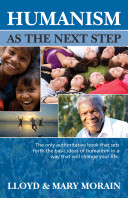Humanism is Grounded in Empirical Reality
We base our understanding of the world on what we can perceive with our senses and comprehend with our minds. Anything that is said to make sense should make sense to us as humans; else there is no reason for it to be the basis of our decisions and actions. Supposed transcendent knowledge or intuitions that are said to reach beyond human comprehension cannot instruct us because we cannot relate concretely to them. The way in which humans accept supposed transcendent or religious knowledge is by arbitrarily taking a leap of faith and abandoning reason and the senses. We find this course unacceptable, since all the supposed absolute moral rules that are adopted as a result of this arbitrary leap are themselves rendered arbitrary by the baselessness of the leap itself. Furthermore, there is no rational way to test the validity or truth of transcendent or religious knowledge or to comprehend the incomprehensible. As a result, we are committed to the position that the only thing that can be called knowledge is that which is firmly grounded in the realm of human understanding and verification.
Notes:
Revealed knowledge serves no purpose because it is not shared by everyone.
Folksonomies: humanism empiricism
Taxonomies:
/religion and spirituality (0.494069)
/hobbies and interests/magic and illusion (0.445865)
/science/social science/philosophy/ethics (0.365680)
Keywords:
Empirical Reality Revealed (0.930649 (negative:-0.387404)), absolute moral rules (0.833350 (negative:-0.692840)), religious knowledge (0.756765 (positive:0.072722)), transcendent knowledge (0.714987 (negative:-0.362845)), arbitrary leap (0.711101 (negative:-0.692840)), human comprehension (0.648008 (negative:-0.362845)), rational way (0.622831 (negative:-0.470245)), human understanding (0.604265 (positive:0.598572)), senses (0.541001 (positive:0.695545)), reason (0.527539 (negative:-0.043813)), humans (0.521110 (positive:0.025430)), sense (0.508343 (negative:-0.517538)), result (0.506052 (negative:-0.692840)), intuitions (0.475619 (negative:-0.362845)), incomprehensible (0.470050 (negative:-0.470245)), Humanism (0.466181 (negative:-0.387404)), minds (0.458535 (positive:0.848123)), validity (0.456056 (negative:-0.470245)), purpose (0.452573 (negative:-0.387404)), decisions (0.452260 (negative:-0.586780)), actions (0.450839 (negative:-0.586780)), thing (0.449615 (positive:0.598572)), world (0.449498 (positive:0.848123)), basis (0.448869 (negative:-0.586780)), verification (0.448603 (positive:0.598572)), position (0.445904 (positive:0.598572)), realm (0.445249 (positive:0.598572)), faith (0.445075 (positive:0.542967))
Concepts:
Perception (0.962345): dbpedia | freebase | opencyc
Understanding (0.801309): dbpedia | freebase | opencyc
Religion (0.797716): dbpedia | freebase | opencyc
Truth (0.719671): dbpedia | freebase
Reason (0.697584): dbpedia | freebase
Sense (0.696000): dbpedia | freebase
Morality (0.668422): dbpedia | freebase
Science (0.585700): dbpedia | freebase | opencyc





